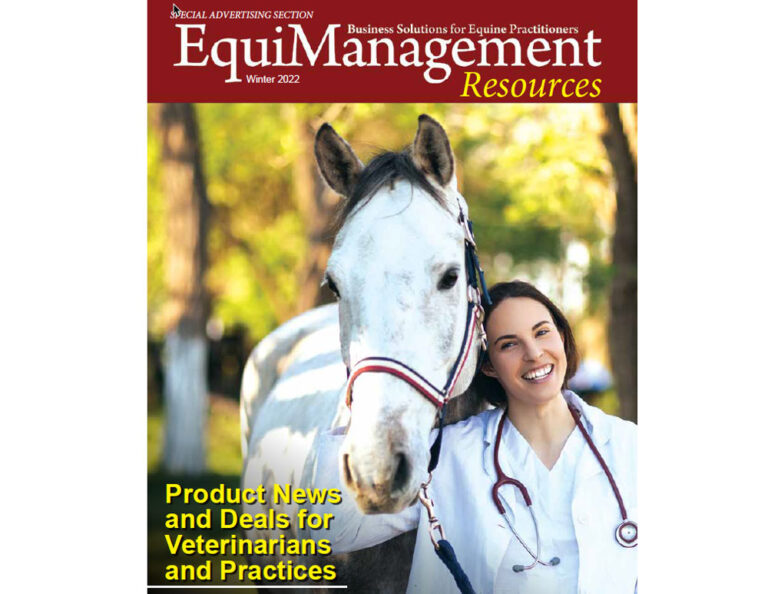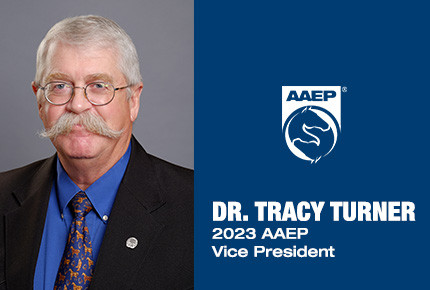 The AHC’s Recreation Committee changed its name to Recreation, Trails & Land Use Committee to more fully encompass what they strive to do.
The AHC’s Recreation Committee changed its name to Recreation, Trails & Land Use Committee to more fully encompass what they strive to do.The American Horse Council (AHC) held its Annual Meeting on June 11, 2017, where all five of the AHC’s standing committees met. Those committees are: Animal Welfare, Health & Regulatory, Horse Show, Racing Advisory, and Recreation. The AHC would like to thank everyone who attended the committee meetings, and hopes that the topics and discussions held were useful and informative. We hope to see everyone there again next year!
Animal Welfare Committee
Committee Chair Dr. Tom Lenz, Senior Director of Equine Veterinary Services for Zoetis, led the 2017 Welfare Committee meeting at the American Horse Council’s Annual Meeting and National Issues Forum. The focus of this year’s meeting was the wild horse and burro situation in the western United States. Dr. Dean Bolstad, Senior Advisor to the Wild Horse and Burro Program at the Department of Interior’s Bureau of Land Management, presented the history of the Wild Horse and Burro Act, the management challenges the BLM have faced, and the size of the population today.
The committee briefly discussed the current status of both the Horse Protection Act rule changes and the reintroduction of the Prevent All Soring Tactics Act (PAST Act). The committee was asked to review the American Horse Council’s Welfare Code of Practice, which can be found here.
The American Horse Council appreciates everyone’s continued interest and support of the Welfare Committee’s efforts and would like to thank Dr. Bolstad, whose presentation and participation was so critical to this year’s success.
Health & Regulatory Committee
The American Horse Council was excited to host the annual Health & Regulatory Committee meeting at this year’s National Issues Forum in Washington D.C. Dr. Richard Mitchell, chair of the committee, led a robust meeting this year. This meeting is an opportunity to highlight the importance of collaboration between federal agencies and the industry in supporting, protecting and promoting the health and well-being of horses and the horse industry.
This year the committee heard from Dr. Josie Traub-Dargatz from the National Animal Health Monitoring System regarding the progress on NAHMS Equine Study, which can be seen here. There was also an USDA-APHIS update from Dr. Alan Huddleston, Assistant Director of the Sheep, Goat, Cervid & Equine Health Center, and Dr. Racheal Cezar, Director for Live Animal Imports.
Cliff Williamson, Director of Health and Regulatory Affairs for the AHC, gave an update on the past year’s efforts in a variety of issues including regulatory changes, new rule development, working group participation and potential new initiatives for the horse industry.
Some of those initiatives were elaborated on by Dr. Nathaniel A. White II, Director of the Equine Disease Communication Center, which can be seen here. Dr. White and Ms. Bailey McCallum, the EDCC’s Communication Manager, provided an update on the financial support to date and the number of alerts and visits the site have had in 2016. Dr. White also briefly discussed the progress of the National Equine Health Plan.
Dr. Peter J. Timoney, of the Gluck Equine Research Center, discussed the need for a generic, nationally applicable, equine specific biosecurity plan that could be referenced by event organizers and horse owners alike to help the industry better respond to a disease outbreak. The concept, modeled on those found in other countries, was discussed and passed to those working on the National Equine Health Plan for possible integration.
Walt Taylor, a farrier from Albuquerque, New Mexico, presented his initiative’s position on the state of equine foot care and farriery in the United States. He discussed his efforts to professionalize the farrier industry and align it with that of other countries.
The American Horse Council appreciates everyone’s continued interest and support of the Health and Regulatory Committee’s efforts and would like to thank those individuals whose presentations and participation contributed to this year’s success.
Horse Show Committee
Committee Chair Gary Carpenter, Commissioner of the National Reining Horse Association, led the 2017 Horse Show Committee meeting at the American Horse Council’s Annual Meeting and National Issues Forum. The committee received an update on the efforts of the American Horse Council over the past year.
The topics included a brief review of current immigration concerns for the horse show sector, specifically with the H-2B program. Also discussed was the current position of both the Horse Protection Act rule changes and the reintroduction of the Prevent All Soring Tactics Act (PAST Act).
The results of the AHC’s Federal Motor Carrier Safety Regulations survey among AHC members were revealed and next steps were discussed. Educating the industry in regards to FMCS regulations was decided as the most appropriate direction for the committee to take, as opposed to pursuing regulatory exemptions.
Horse shows and event biosecurity were also discussed as industry leaders take steps to ensure horse health at events and limiting the spread of disease becomes a priority for both event managers and participants. Federal and state health officials spoke to the efforts that are being made as well as the important collaborations that are occurring between industry and regulatory groups.
The American Horse Council would like to thank all those who attended and participated in the discussions held during the AHC Horse Show Committee meeting and contributed to its success.
Racing Advisory Committee
The American Horse Council (AHC) Racing Advisory Committee met on June 11, 2017 in Washington, D.C., as part of the AHC’s Annual meeting.
At the meeting, the committee discussed a variety of legislative and regulatory issues, including federal tax reform, recently filed racing medication legislation, efforts to repeal the federal ban on sports betting, pending Treasury Department withholding and reporting rule changes, and possible solutions for ADW account holders using certain credit cards to fund their wagering accounts. Attached to this release is a listing of the members of the committee and their industry affiliations.
The committee discussed at length the importance of the H-2B temporary foreign worker visa program to horse racing. Because the current cap on H-2B visas is set at only 66,000, many employers including horse trainers, are not able to hire sufficient workers. The struggle to find backstretch workers is becoming a serious problem at many racetracks in the U.S. and is causing some trainers to reduce operations.
In April, Congress included limited H2B cap relief as part of the Omnibus Appropriations bill to fund the federal government through Sept 30, 2017. The bill gave the Department of Homeland Security, together with the Department of Labor, the authority to more than double the number of H-2B visas available in fiscal year 2017 upon a finding of economic necessity. So far, no action has been taken to increase the number of visas available.
The committee directed AHC staff to work closely with other industry groups and the broader H-2B Coalition to encourage Congress and the Trump administration to provide horse trainers and other industries reliant upon foreign workers with much-needed relief from the current cap on H-2B visas.
AHC President Julie Broadway stated “The AHC Racing Advisory Committee clearly identified the current shortage of temporary workers as a serious challenge for horse racing. The AHC staff will work closely with other racing industry organizations to provide horse trainers with much-needed relief from the current cap on H-2B visas.”
Recreation Committee
The AHC’s Recreation Committee met Monday, June 11, during the American Horse Council’s Annual Meeting.
Chairman Jim McGarvey of Back Country Horsemen of America started the meeting off by thanking everyone for their hard work in the passage of the National Forest Trails Stewardship Act. He went over a brief timeline of how the bill became law. “Many people worked to achieve passage of this bill over the last couple of years,” said McGarvey. “We were glad to see that Congress recognized the importance that our trails play in the role of letting Americans experience the great outdoors.”
The committee also examined several news bills that had been introduced and what their impacts on the horse industry would be:
- H.R. 1349 – “To amend the Wilderness Act to ensure that the use of bicycles, wheelchairs, strollers, and game carts is not prohibited in Wilderness Areas, and for other purposes”.
- H.R. 621- Disposal of Excess Federal Lands Act of 2017
- H.R. 2862- Wildfire Disaster Funding Act of 2017
The committee also felt that a name change for the committee itself was in order. After discussion, it was decided that the name of the committee should be “Recreation, Trails & Land Use Committee.” While this committee has historically dealt with issues relating to trails and public land use, it was decided that the ‘recreation’ aspect of the industry that does not always use trails for riding enjoyment should also be fairly represented.
For more information on the American Horse Council visit their website.








